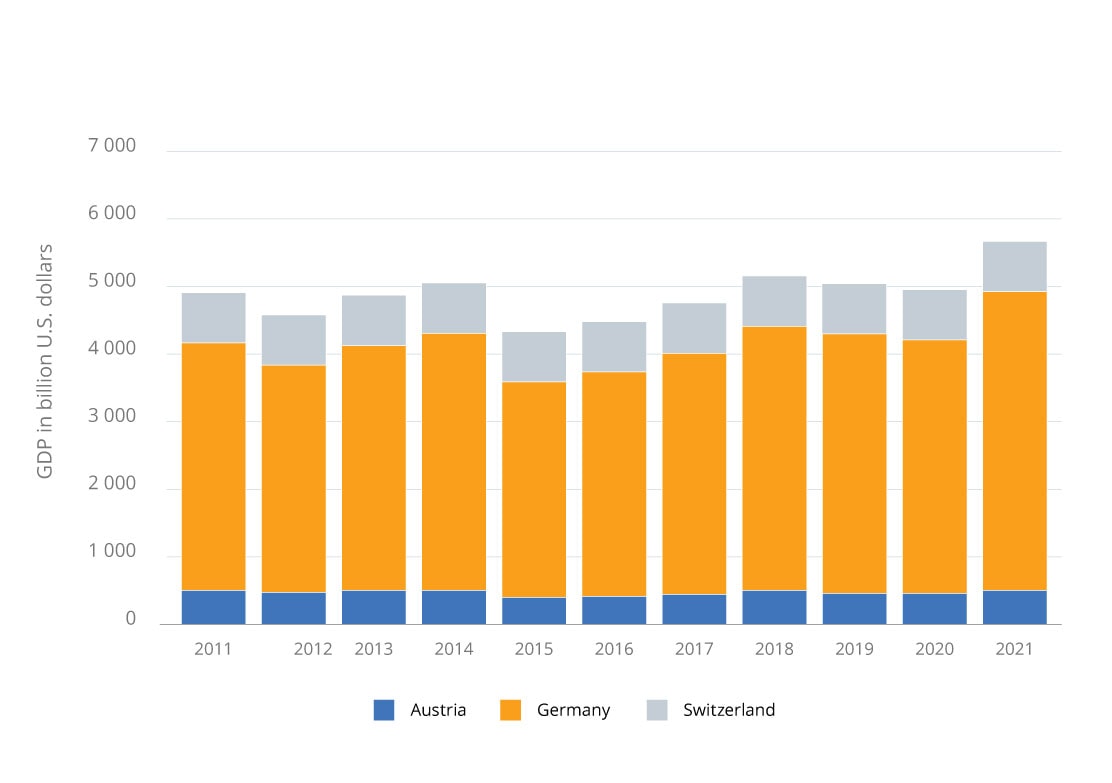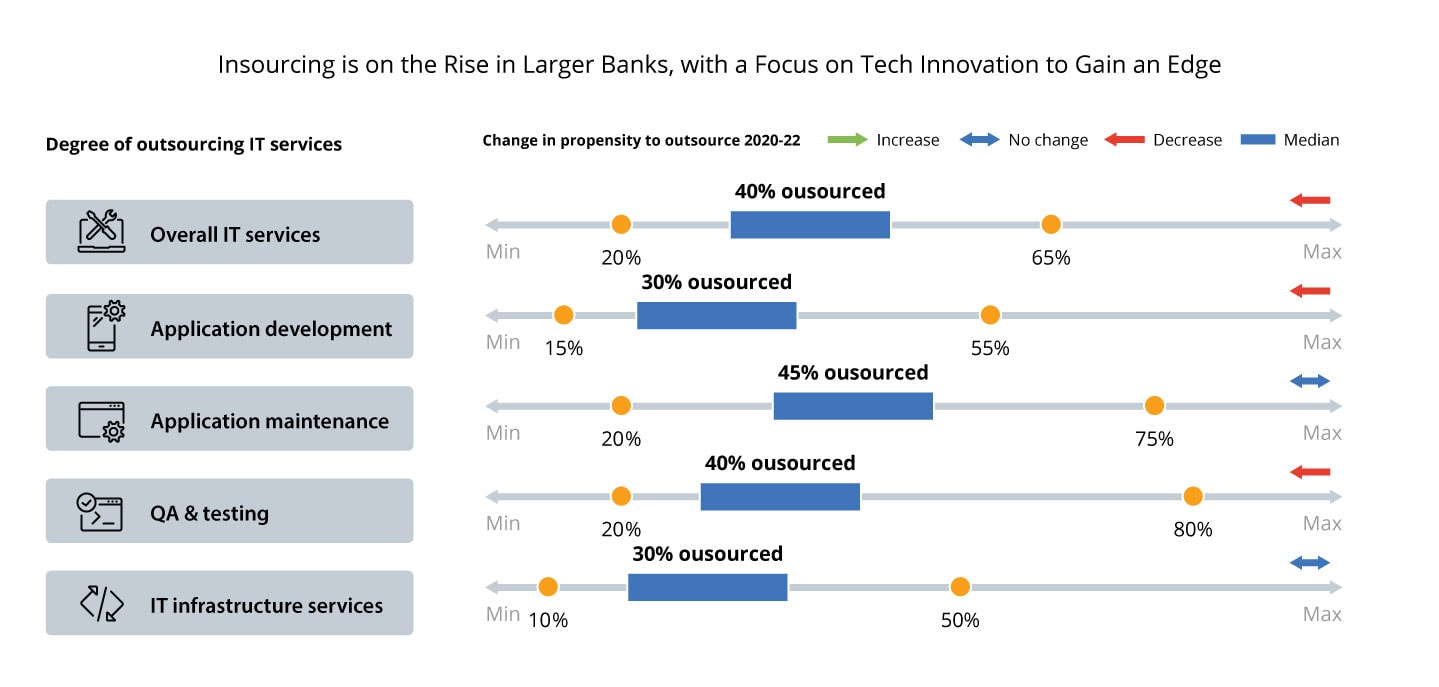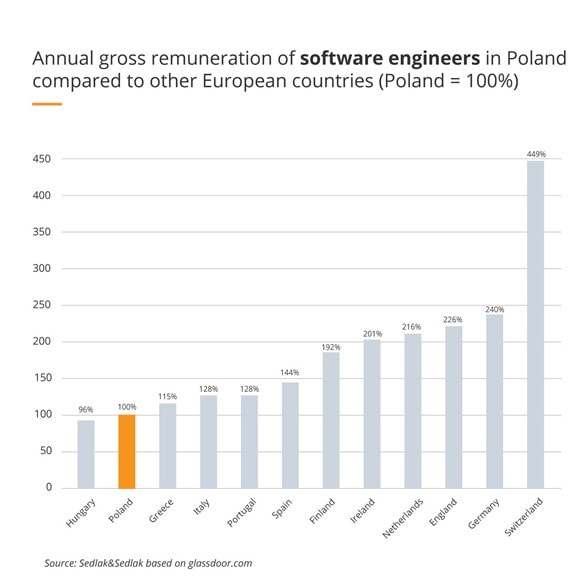
The future of IT outsourcing in DACH – what are the trends?
The DACH (Germany, Austria and Switzerland) region stands out from other parts of Europe with its focus on quality, effectiveness and attention to detail. Especially now, more than ever, because of all the shifts that have occurred in global working environments due to the COVID-19 pandemic.
Together – with Germany at the helm – DACH forms the pillar of the European economy since the GDP of all the DACH countries combined amounts to over 5 trillion U.S. dollars.
No wonder IT service providers across the world are competing to work with technology partners based in the DACH region since these organisations are known for their stability and reliability.
But what does this look like from the DACH perspective?
4 outsourcing trends in the DACH region
- Focus on scalability
According to the Global Outsourcing Survey 2020, cost reduction is back on the top of the list of reasons for outsourcing. However, in Germany and Switzerland, scalability is reason number one (only in Austria do companies still expect, first and foremost, to reduce their costs through outsourcing). This means that the majority of DACH businesses put quality, and business development and growth first, which suggests that they are likely to spend more money on IT services in order to achieve a better outcome.
- More stress on development
Moreover, German companies (unlike other European countries) plan to outsource even more. The COVID-19 pandemic hasn’t stopped them – actually, just the opposite. They’ve seemed to notice that in order to maintain a competitive edge, they cannot afford to slow down. Every change in the external environment is also perceived as a potential opportunity, e.g., to find new sources of revenue or an innovative solution that will help them deal with any emergencies that may pop up in the future.
- Interest in insourcing
In other countries (such as Switzerland), there’s a growing tendency to focus on insourcing, which is the process of assigning work to another company that operates within the same country (or even the same region). And this trend can be seen globally, especially in the BFS (Banking and Financial Services) industry, so it’s no surprise that Swiss organisations (oftentimes BFS-related) are so interested in this.
Insourcing is usually much more expensive than outsourcing but results in faster time-to-market and a higher quality final product. Also, it seems like the optimal way to mitigate business risks and a good alternative to outsourcing to companies that are located in regions with very different business cultures and limited political stability.
- Emphasis on innovation
And last but least, there’s definitely been an increased focus on innovation, such as Intelligent Automation and cloud solutions. This is noticeable across the world, and not only in the DACH region, since the pandemic has forced organisations to rapidly change the way they work and create software solutions that suit both their needs and requirements, as well as those of their customers.
Based on these trends, we can also try to predict how this may escalate.
3 outsourcing predictions for the DACH region
Switching to nearshoring
Interest in nearshoring to Poland, the Ukraine, Belarus, or Romania will continue to increase due to:
- the growing number of skilled developers in these regions, especially those with a solid technical education and years of commercial experience,
- geographical proximity, which results in little to no barriers between cultures or confusing time-zones, and a better mutual business understanding,
- excellent communication, both in terms of the chosen language (English or even German) and accessibility to key persons,
- an optimal alternative to both offshoring and insourcing – nearshoring seems to be a happy medium.
- a good price-to-quality ratio.
Focusing on the system and data security
The COVID-19 pandemic has forced companies to double their efforts in data security due to:
- having to switch to remote work,
- having to maintain business continuity in case of emergency.
Updating legacy systems or building new ones from scratch will become a number one priority for many DACH organisations, so that they can prevent any cyber-attacks or data breaches.
Selecting only the most quality-oriented and reliable IT companies
We can now expect that for DACH companies:
- price, as a factor, will decrease in importance,
- the efficiency of delivery will matter even more,
- agility and flexibility in unstable environments will become a regular requirement.
Companies that are thinking about outsourcing will be looking for IT partners that they can truly rely on as stability grows in importance, especially during these erratic times; this will be a valid part of their risk-mitigation strategies. They will be far more willing to invest a significant part of their budgets in trustworthy cooperation that will allow them to minimise the risk of losing much more money compared to the much greater risks associated with selecting a cheaper but much less reliable option.
Conclusions
As you may have already noticed, Polish software development companies are likely to expect a huge increase in interest from organisations located in the DACH region – especially from those based in Silesia.
Silesia – a Polish region that shares similar cultural values, historical connections and close geographical proximity to the DACH region – is quite a natural choice for German, Austrian and Swiss companies. They appreciate all the focus on hard work, attention to detail, and the linguistic skills that their Silesian neighbours are able to offer them.
And we know what we’re talking about because we’re Silesia-based, too! So, if you would like to give us a try, you can contact us any time to find out how we can help your company and what exactly we have in store for you.








